10 Powerful Carbs That Fuel Your Body for Energy All Day
Carbohydrates often find themselves at the center of dietary debates, yet they play a crucial role in maintaining our health and vitality. Far from being mere energy providers, the right carbs can significantly enhance our overall well-being. They are the body's primary source of energy, fueling everything from daily activities to intense workouts. Understanding the difference between refined and nourishing carbs is essential for harnessing their full potential. This article delves into the top 10 nourishing carbs that not only energize but also support vibrant health, providing insights into how these powerhouse foods can transform your diet and lifestyle. Nourishing carbs are rich in essential nutrients, fiber, and compounds that promote metabolic health, support digestion, and boost immunity. Unlike their refined counterparts, these carbs are minimally processed, retaining their natural goodness. They are integral to a balanced diet, ensuring sustained energy release, improved mood, and enhanced cognitive function. Prepare to embark on a journey that will change your perspective on carbohydrates and their role in your well-being.
1. The Power of Quinoa: A Complete Protein Source
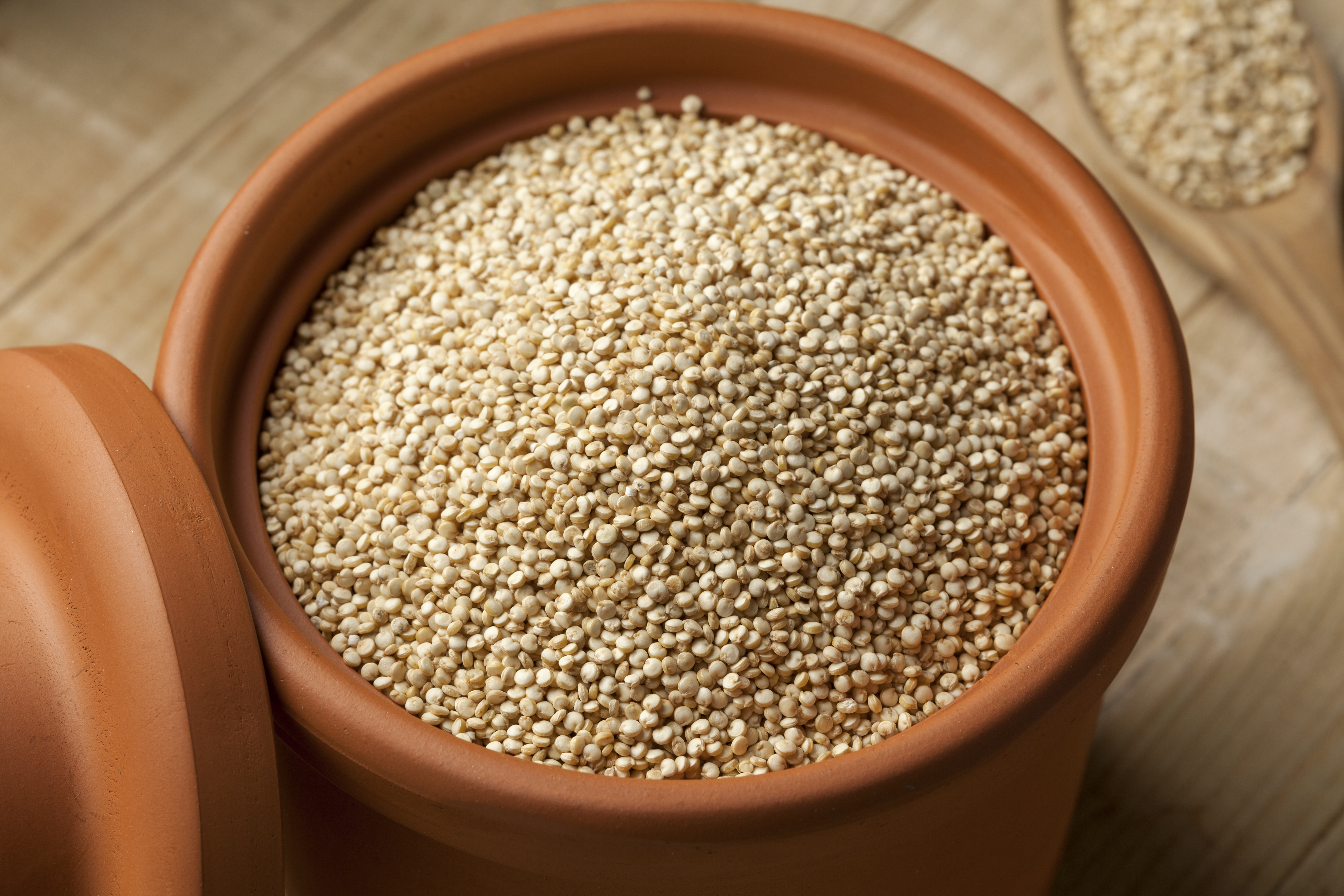
Quinoa, often hailed as a superfood, is a versatile grain that stands out for its exceptional nutritional profile. Unlike most plant-based foods, quinoa is a complete protein, meaning it contains all nine essential amino acids that the body cannot produce on its own. This makes it an invaluable addition to vegetarian and vegan diets, providing a robust protein source that supports muscle repair and growth. Rich in fiber, quinoa also aids digestion and helps maintain a healthy weight by promoting satiety. Beyond its protein content, quinoa is packed with vitamins and minerals, including magnesium, B vitamins, iron, potassium, calcium, phosphorus, vitamin E, and various beneficial antioxidants. These nutrients play a vital role in cellular function, energy production, and the prevention of chronic diseases. Quinoa's low glycemic index ensures a steady release of energy, preventing blood sugar spikes and crashes. Incorporating quinoa into your diet can lead to improved metabolic health, increased vitality, and overall well-being, making it a top choice among nourishing carbs.
2. Sweet Potatoes: Nature's Nutrient-Dense Carb
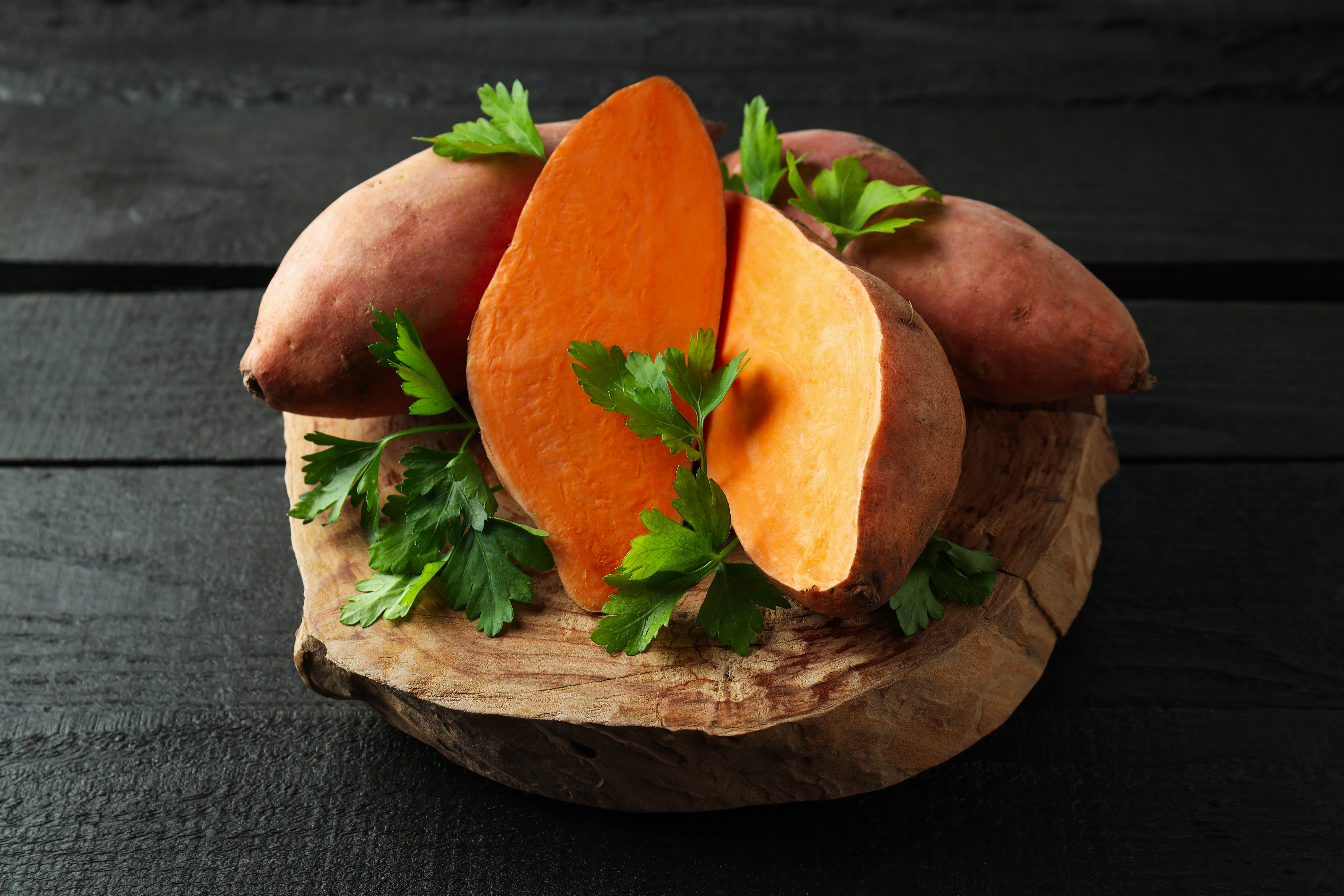
Sweet potatoes are a delicious and nutritious carbohydrate source that offers a wealth of health benefits. Rich in complex carbohydrates, they provide a steady supply of energy, making them an excellent choice for athletes and active individuals. Sweet potatoes are also high in fiber, which aids digestion, stabilizes blood sugar levels, and promotes a feeling of fullness. Their vibrant orange hue is a testament to their high beta-carotene content, a powerful antioxidant that the body converts into vitamin A, essential for vision, immune function, and skin health. In addition to beta-carotene, sweet potatoes are packed with vitamins C and B6, as well as minerals like potassium and manganese. These nutrients support cardiovascular health, reduce inflammation, and enhance brain function. The anthocyanins found in purple sweet potatoes offer additional antioxidant and anti-inflammatory benefits. By incorporating sweet potatoes into your meals, you not only enjoy their natural sweetness and versatility but also harness their potential to boost your energy levels and overall vitality.
3. Oats: The Heart-Healthy Carb
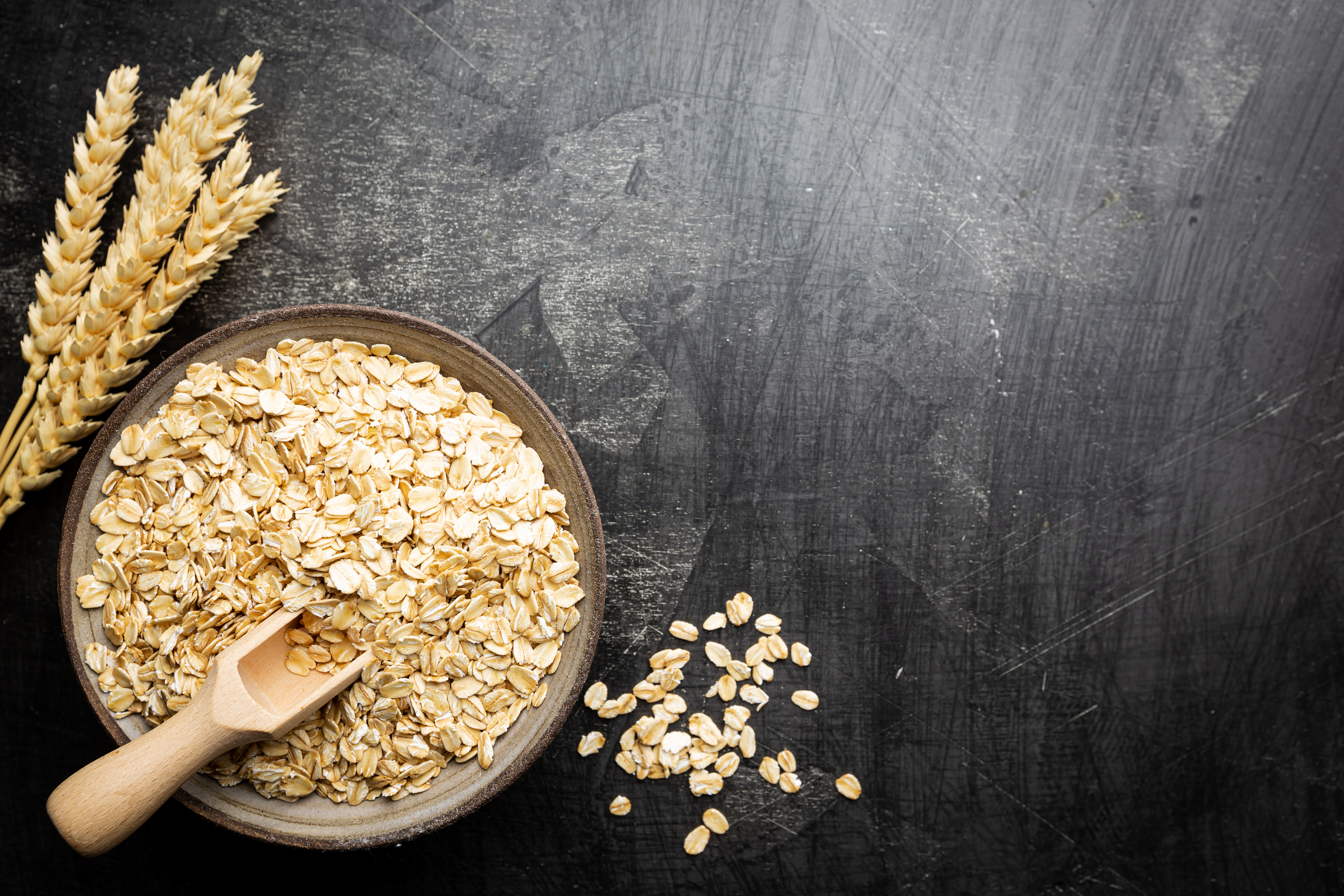
Oats are a staple breakfast food that boasts an impressive array of health benefits. Known for their heart-protective properties, oats are rich in a unique type of soluble fiber called beta-glucan. This fiber has been shown to lower cholesterol levels, reduce the risk of heart disease, and promote healthy blood sugar control. By slowing down digestion, beta-glucan also helps maintain steady energy levels, making oats an ideal choice for sustaining energy throughout the day. Beyond their fiber content, oats are a good source of essential vitamins and minerals, including manganese, phosphorus, magnesium, copper, iron, zinc, folate, and vitamin B1. These nutrients support various bodily functions, from energy metabolism to bone health. Oats also contain powerful antioxidants called avenanthramides, which have anti-inflammatory and anti-itching properties. Including oats in your diet can lead to improved heart health, better digestion, and enhanced energy, making them a must-have nourishing carb.
4. Brown Rice: The Whole Grain Wonder
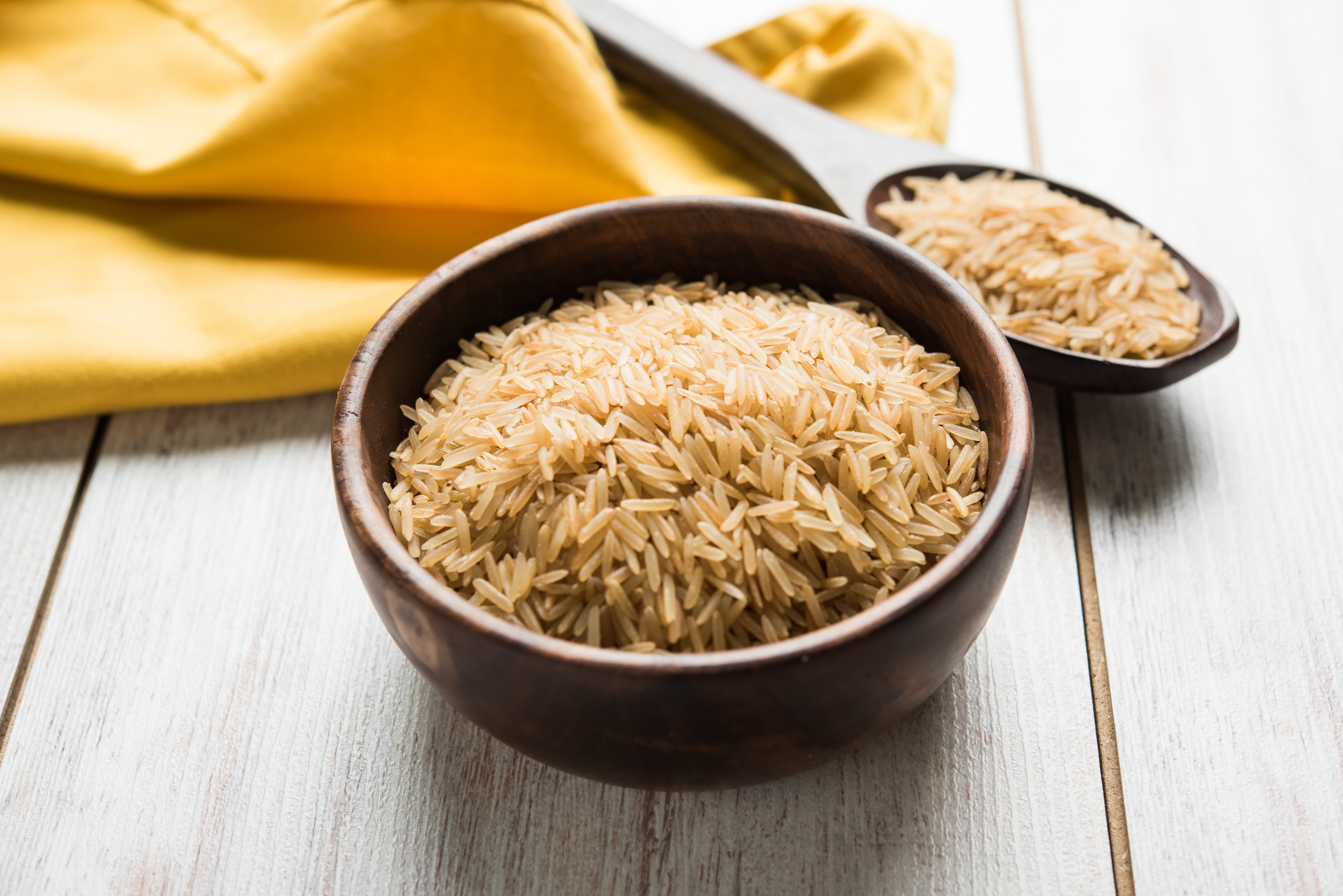
Brown rice is a whole grain that offers a wealth of health benefits, making it a superior choice over its refined counterpart, white rice. Unlike white rice, brown rice retains its bran and germ, which are rich in fiber, vitamins, and minerals. This makes brown rice a more nutrient-dense option that supports digestive health, aids in weight management, and provides long-lasting energy. The fiber in brown rice helps regulate blood sugar levels, reducing the risk of type 2 diabetes and promoting satiety. In addition to fiber, brown rice is packed with essential nutrients, including magnesium, phosphorus, selenium, manganese, and B vitamins. These nutrients play a crucial role in energy production, bone health, and immune function. Brown rice is also a good source of antioxidants, which protect the body from oxidative stress and inflammation. By choosing brown rice over refined grains, you can improve your overall health, enhance your vitality, and enjoy a delicious and versatile carbohydrate source.
5. Lentils: The Protein-Packed Legume
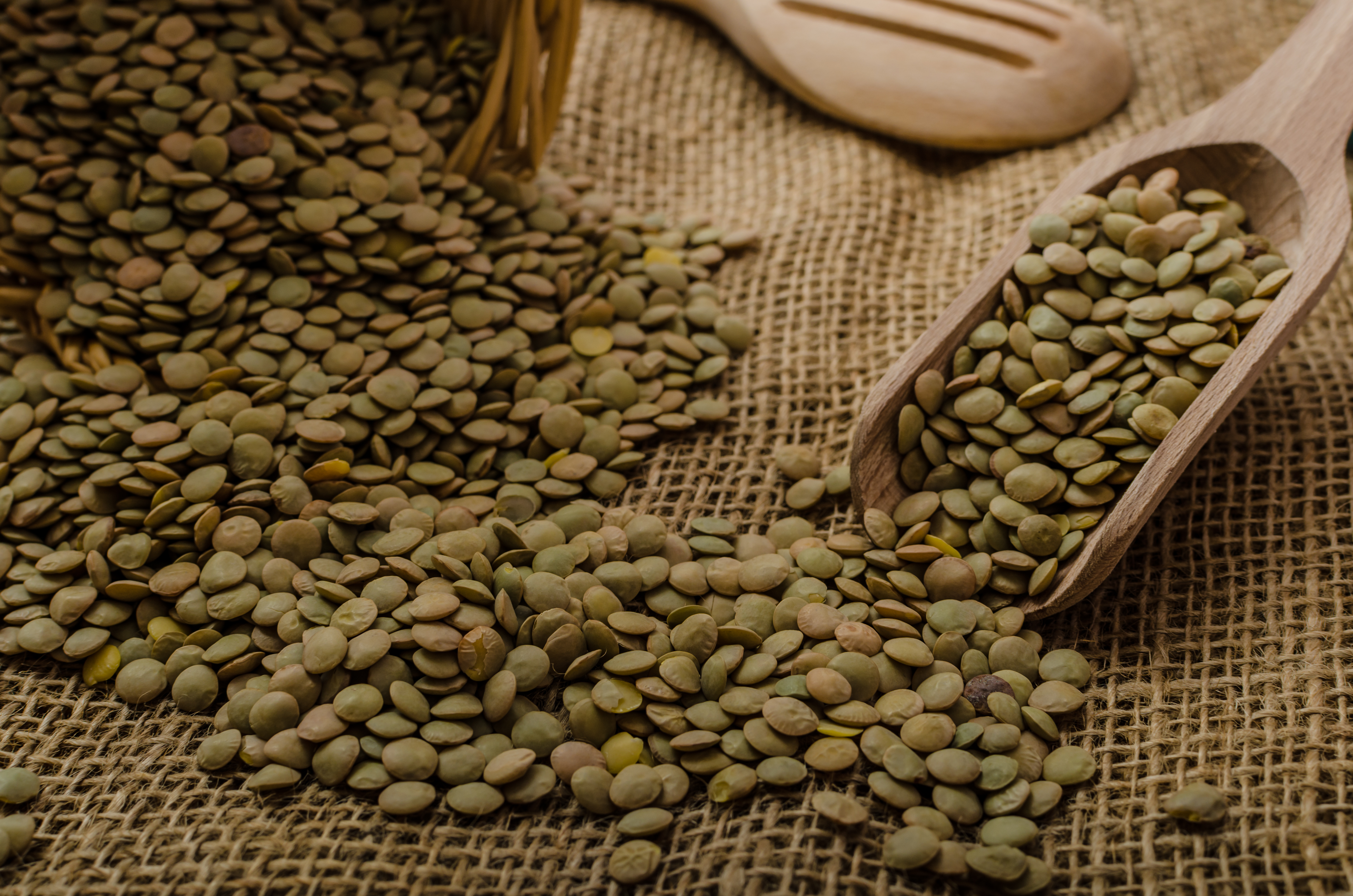
Lentils are a nutrient-dense legume that offers a powerful combination of protein, fiber, and essential nutrients. As a plant-based protein source, lentils are an excellent choice for vegetarians and vegans, providing the amino acids needed for muscle repair and growth. The high fiber content in lentils supports digestive health, stabilizes blood sugar levels, and promotes a feeling of fullness, aiding in weight management. Rich in iron, folate, and other B vitamins, lentils support energy production, red blood cell formation, and nervous system health. They also contain important minerals like magnesium, potassium, and zinc, which contribute to heart health, immune function, and bone strength. The antioxidants in lentils help reduce inflammation and protect against chronic diseases. By incorporating lentils into your diet, you can enjoy their numerous health benefits while adding variety and flavor to your meals.
6. Chickpeas: The Versatile Nutritional Powerhouse
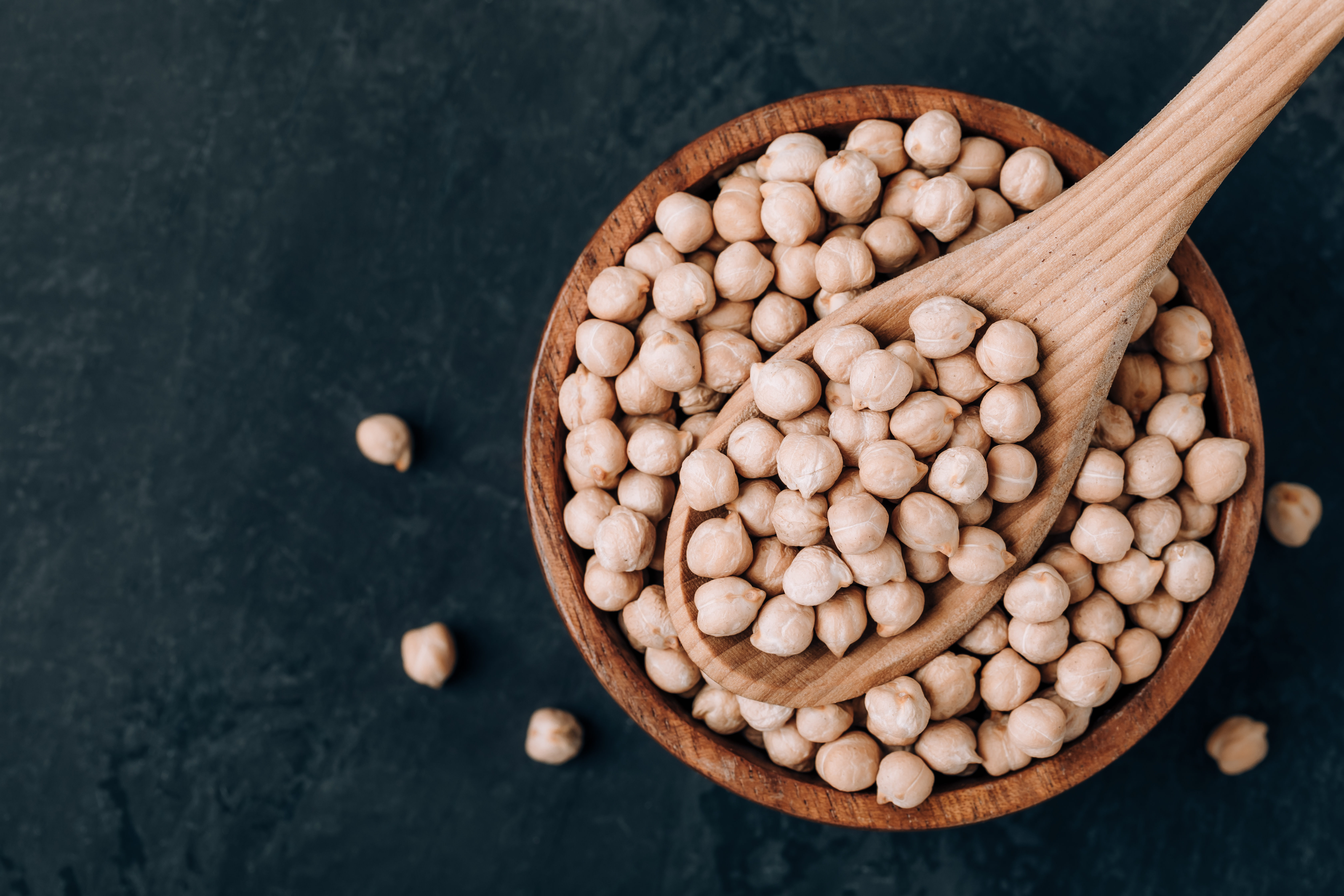
Chickpeas, also known as garbanzo beans, are a versatile legume that offers a wealth of health benefits. Packed with protein and fiber, chickpeas are a satisfying and nutritious carbohydrate source that supports digestive health, stabilizes blood sugar levels, and aids in weight management. Their high protein content makes them an excellent choice for vegetarians and vegans, providing essential amino acids needed for muscle repair and growth. In addition to protein and fiber, chickpeas are rich in essential vitamins and minerals, including iron, folate, phosphorus, and manganese. These nutrients support energy production, red blood cell formation, and bone health. Chickpeas also contain antioxidants that help reduce inflammation and protect against chronic diseases. Their versatility makes them an excellent addition to a variety of dishes, from salads and soups to curries and hummus. By incorporating chickpeas into your diet, you can enjoy their numerous health benefits and enhance your overall vitality.
7. Barley: The Ancient Grain with Modern Benefits
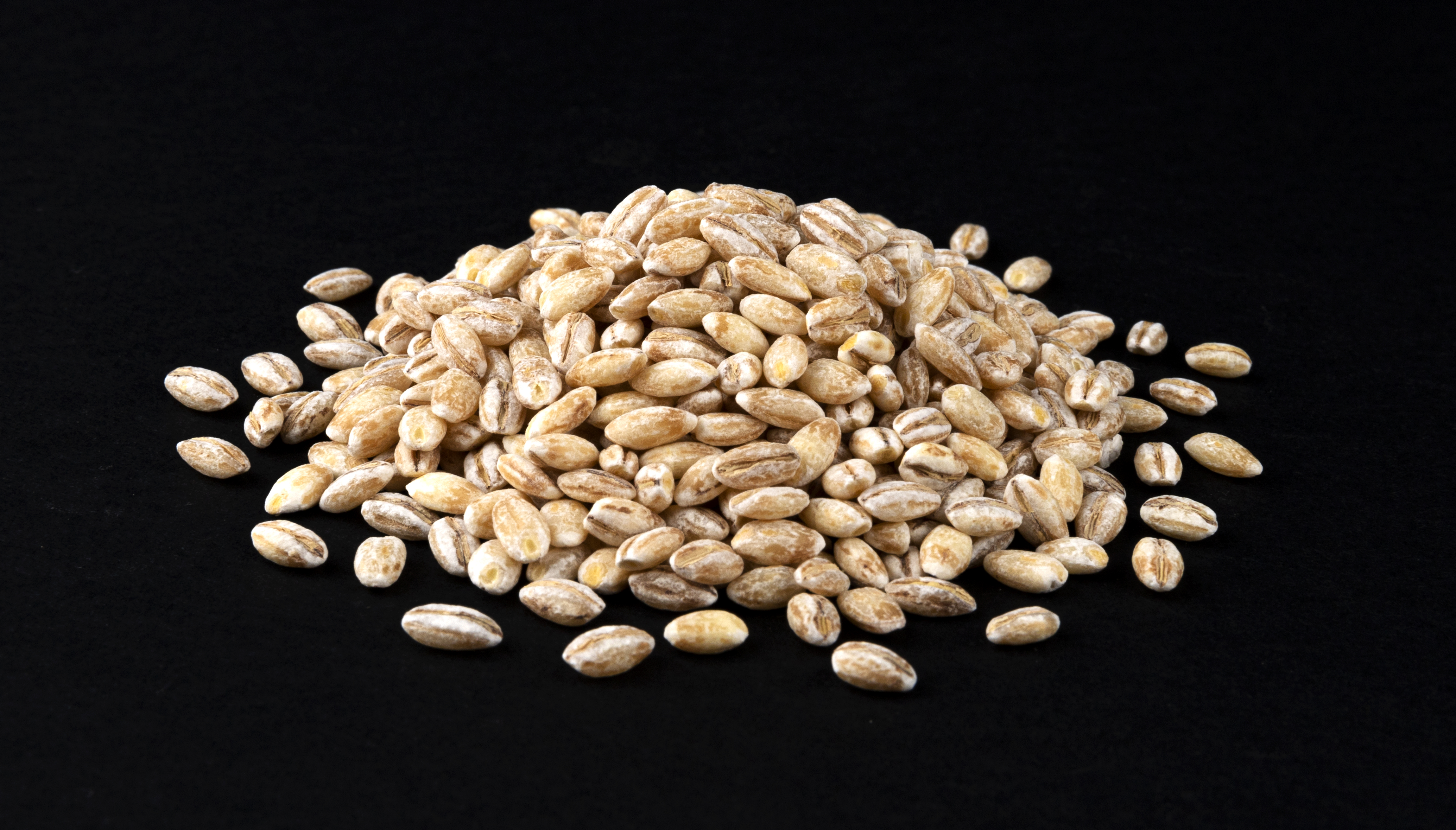
Barley is an ancient grain that has been cultivated for thousands of years and continues to offer modern health benefits. Rich in fiber, barley supports digestive health, stabilizes blood sugar levels, and promotes a feeling of fullness, making it an excellent choice for weight management. The soluble fiber in barley, known as beta-glucan, has been shown to lower cholesterol levels and reduce the risk of heart disease. In addition to fiber, barley is a good source of essential vitamins and minerals, including selenium, magnesium, phosphorus, and B vitamins. These nutrients support various bodily functions, from energy metabolism to immune function. Barley also contains antioxidants that help reduce inflammation and protect against chronic diseases. Its nutty flavor and chewy texture make barley a versatile ingredient in soups, salads, and side dishes. By incorporating barley into your diet, you can enjoy its numerous health benefits and enhance your overall well-being.
8. Whole Wheat Pasta: A Nutritious Twist on a Classic

Whole wheat pasta is a nutritious alternative to traditional white pasta, offering a wealth of health benefits. Unlike refined pasta, whole wheat pasta retains its bran and germ, which are rich in fiber, vitamins, and minerals. This makes whole wheat pasta a more nutrient-dense option that supports digestive health, aids in weight management, and provides long-lasting energy. The fiber in whole wheat pasta helps regulate blood sugar levels, reducing the risk of type 2 diabetes and promoting satiety. In addition to fiber, whole wheat pasta is packed with essential nutrients, including iron, magnesium, phosphorus, and B vitamins. These nutrients play a crucial role in energy production, bone health, and immune function. Whole wheat pasta also contains antioxidants that help reduce inflammation and protect against chronic diseases. By choosing whole wheat pasta over refined grains, you can improve your overall health, enhance your vitality, and enjoy a delicious and versatile carbohydrate source.
9. Buckwheat: The Gluten-Free Nutritional Gem
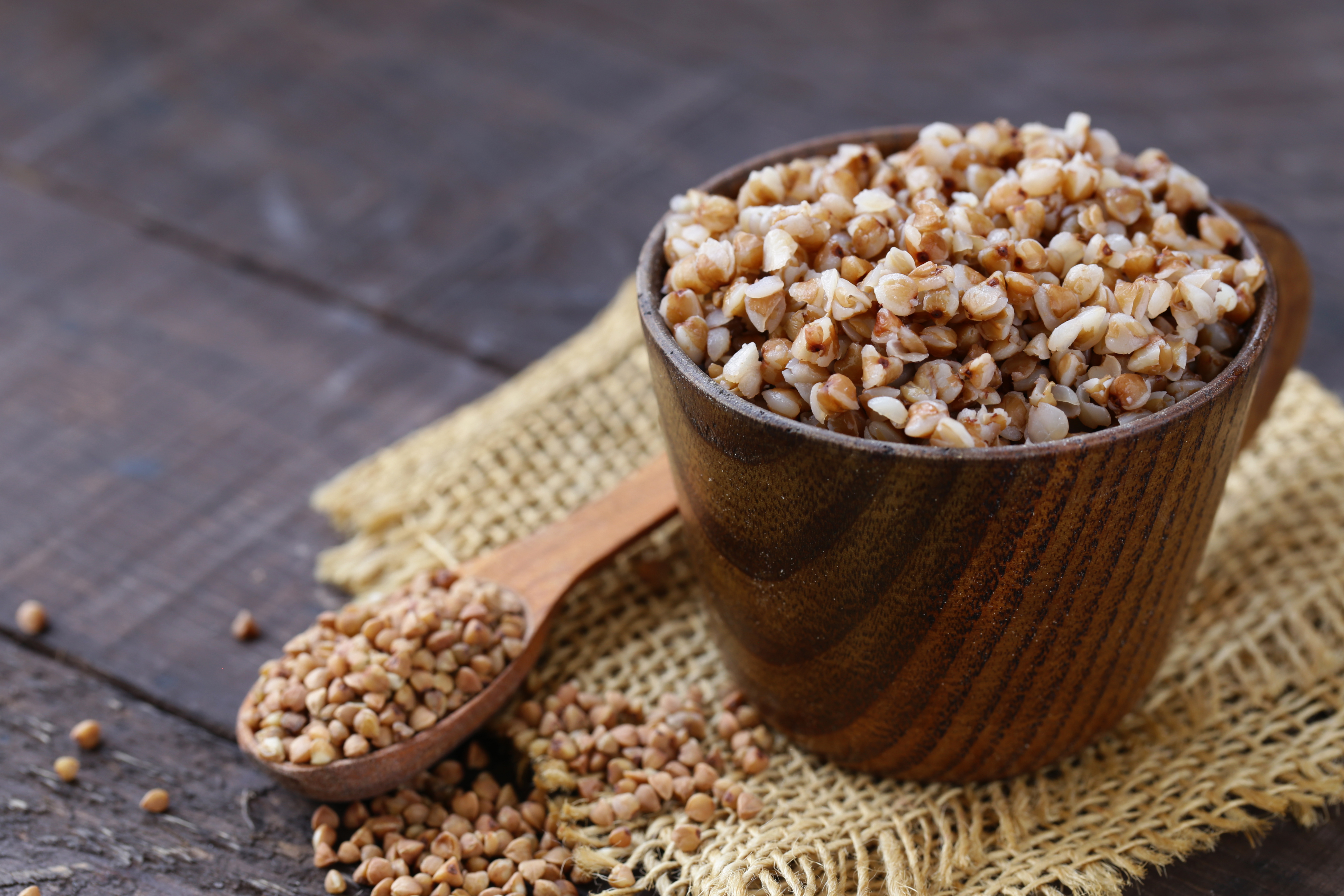
Buckwheat is a gluten-free grain that offers a wealth of health benefits, making it a valuable addition to any diet. Despite its name, buckwheat is not related to wheat and is naturally gluten-free, making it a suitable option for those with gluten sensitivities or celiac disease. Rich in fiber, buckwheat supports digestive health, stabilizes blood sugar levels, and promotes a feeling of fullness, aiding in weight management. In addition to fiber, buckwheat is a good source of essential vitamins and minerals, including magnesium, phosphorus, copper, and manganese. These nutrients support various bodily functions, from energy metabolism to bone health. Buckwheat also contains antioxidants, such as rutin, which have anti-inflammatory and cholesterol-lowering effects. By incorporating buckwheat into your diet, you can enjoy its numerous health benefits and enhance your overall well-being.
10. Amaranth: The Ancient Supergrain for Energy and Vitality
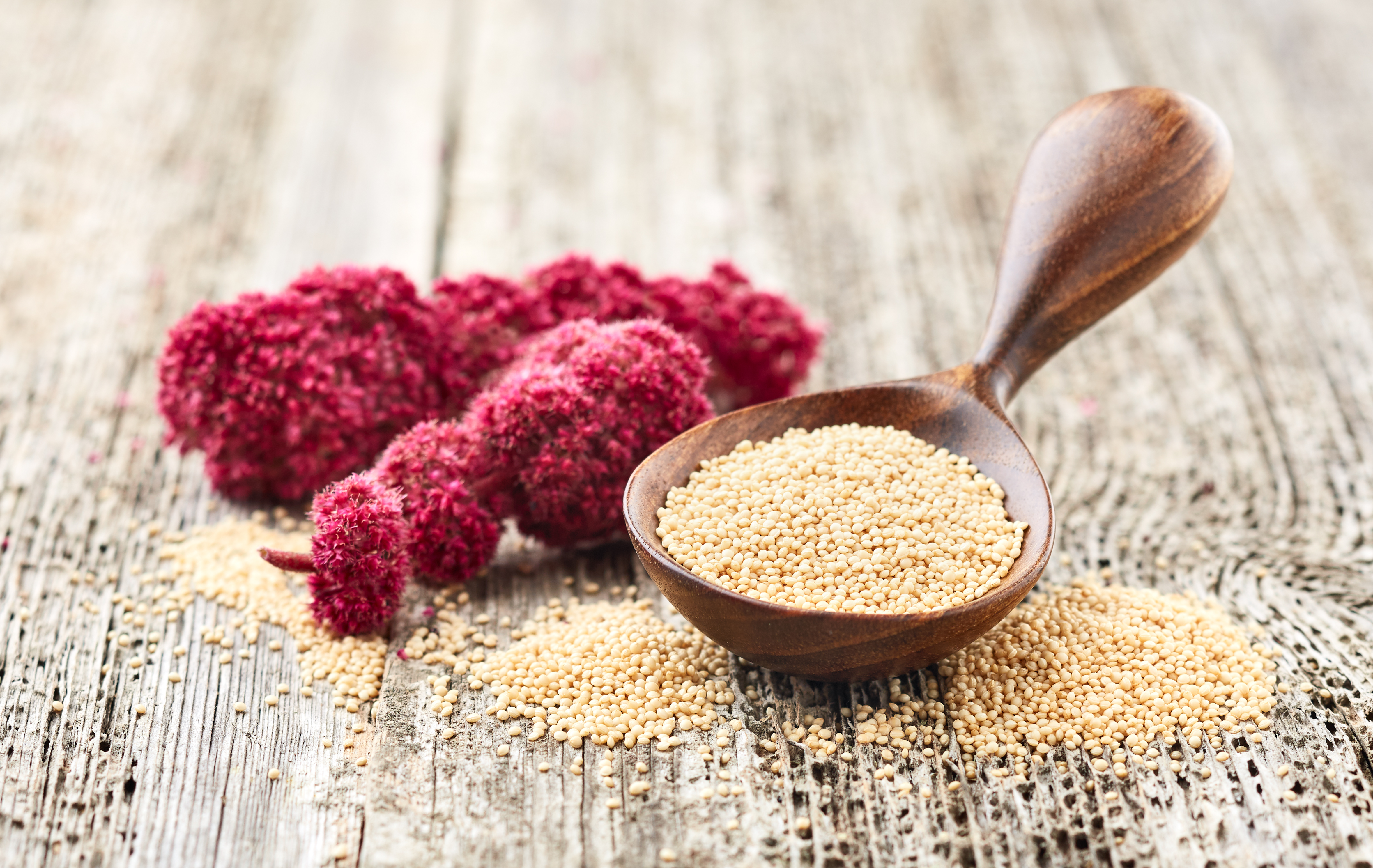
Amaranth is an ancient grain packed with protein, fiber, and essential micronutrients, making it a powerhouse for sustained energy and overall well-being. Unlike many other grains, amaranth is naturally gluten-free and boasts an impressive amino acid profile, particularly rich in lysine, which is essential for muscle repair and immune support. It also contains iron, magnesium, phosphorus, and antioxidants, all of which contribute to heart health, bone strength, and reduced inflammation. With its low glycemic index, amaranth helps maintain stable blood sugar levels, making it an excellent choice for those looking for a steady source of energy. Whether used in porridge, salads, or as a rice alternative, this versatile grain adds a nutritious boost to any meal, helping to fuel your body and support long-term vitality.
Embracing Nourishing Carbs for Vibrant Health
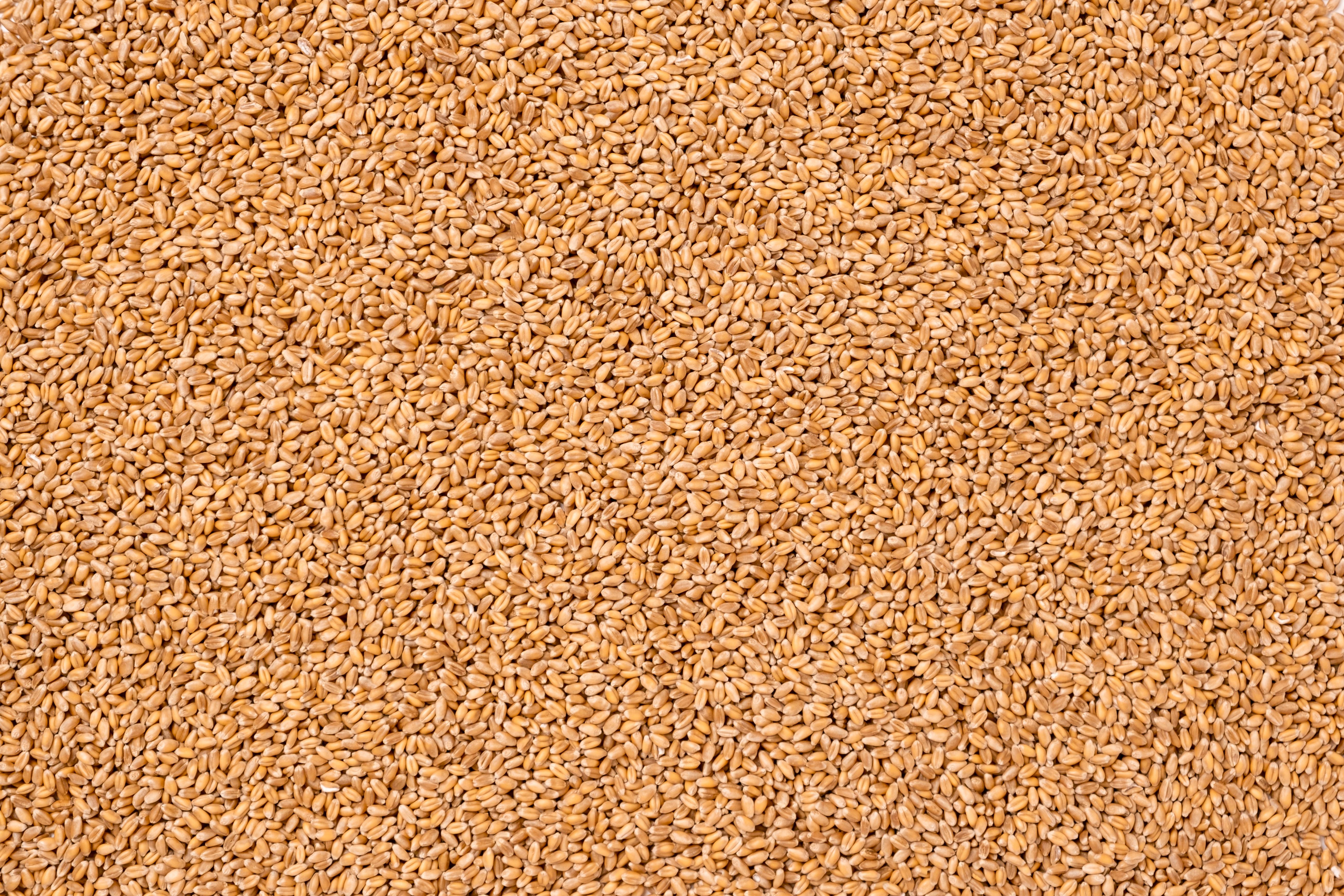
As we have explored, the top ten nourishing carbs offer a wide range of health benefits that go beyond mere energy provision. These nutrient-dense foods support various aspects of health, from digestive and cardiovascular health to immune function and weight management. By incorporating these nourishing carbs into your diet, you can enjoy improved energy levels, enhanced vitality, and a greater sense of well-being. Understanding the difference between refined and nourishing carbs is key to making informed dietary choices. By opting for whole, minimally processed carbs, you can harness their full potential and support your body's needs. Embrace these nourishing carbs as part of a balanced diet, and experience the transformative power they hold for your health and vitality. Whether you're an athlete seeking sustained energy or someone looking to improve overall well-being, these nourishing carbs can help you achieve your health goals and live a vibrant, energetic life.
